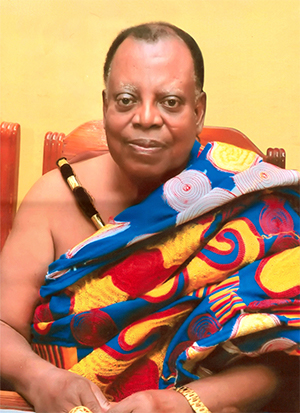
Prof. SKB Asante’s article titled “Ghana As Advocate of West African Regionalism and Continental Integration” as usual, makes for interesting reading. However, in practical terms, the well-worn argument for regional and continental integration is heavy on theory and decidedly limbless on feasibility. Indeed, one cannot be proud enough of the inescapable historical fact that Ghana has played a leading role in the political and ideological push towards regional and continental integration. But even as Prof. Asante himself would be quick to point out, the practical reality, even as Dr. JB Danquah recognized the same more than 60 years ago, does not point towards any sanguine expectation for the full realization of the otherwise progressive idea of the ultimate integration of the West African sub-region in the offing.
This was, to be certain, essentially why the putative Doyen of Gold Coast and Modern Ghanaian Politics eagerly highlighted the emulative “Beacon Approach” which, in essence, advocated “Nationalistic Role-Modelling.” Simply put, Danquah envisaged the best and most meaningful approach to regional and continental integration in terms of Ghana’s taking the leading role by expediting the country’s socioeconomic, cultural, political and technological development to serve as an example for both our immediate neighbors and those of our kinsfolk or clansmen and women across the continent. Danquah arrived at this practically foresighted conclusion after having conferred with Francophone elite African leaders like Felix Houphouette-Boigny (Offei-Boahen), of the Ivory Coast (or La Côte d’Ivoire), and Leopold Sédar Senghor of Senegal. He had then decided that these two major West African leaders were too deeply mired in their own individual flirtations and romance with France, or Gaul, to be seriously reckoned as vanguard partners in the visionary and auspicious push towards continental African integration for the rapid empowerment and development of global African people.
In the main, it cannot be gainsaid that Mr. Kwame Nkrumah, the future first postcolonial leader of an Independent Ghana and the convener of the 1945 Manchester Pan-African Congress, was the vector or staunch advocate for the ideals and futuristic dreams of African-American leaders like WEB DuBois, a seminal Nkrumah mentor, and Messrs. Martin Delaney and Alexander Crummell. Indeed, the very idea for the hosting of the Pan-African Congresses had long been pioneered in the early 1900s, even before the birth of Nkrumah, by a prominent Trinidadian legal practitioner resident in London, UK, by the name of Henry Sylvester Williams. The latter fact is often either deliberately or conveniently ignored by ardent Nkrumah supporters and sympathizers in an obviously tendentious but clearly ahistorical bid to apotheosizing their political idol and hero.
Indeed, the 1945 Pan-African Congress, the fifth of its kind, was a watershed moment for the radical push for African liberation from Western colonial imperialism, but it was scarcely without precedence. Indeed, long before Nkrumah’s clarion call for the establishment of a West African Economic Union, as Prof. Asante poignantly observes, there had been established in London the equally historically seismic West African Students’ Union by some 21 West African-descended law students, led by a Nigerian national called Mr. Ladipo Solanke on August 7, 1925, exactly 20 years before the 1945 Manchester-hosted Pan-African Congress. The fanatical Nkrumacrats may not want to hear this, but Dr. Danquah had been elected First President of the West African Students’ Union (WASU), the same organization that would serve as the political launching pad for the future Prime Minister Kwame Nkrumah, subsequently elected Executive President of Ghana.
I guess what I am trying to suggest here is that most of the African countries being pushed towards the “Integration Project” are rather too socioeconomically, culturally and politically fragile to make such push either realistic or practically meaningful and lucrative. At least, at this point in time, a relatively much more economically and politically stronger Ghana may actually stand to lose out on the benefits of an economically integrated West Africa, as we may be already experiencing by way of the inordinate influx of nationals from our neighboring countries who may very well be equipped with direly needed skills and talents but may also, nevertheless, be swamping our otherwise staid and placid country with such heinous acts of criminality as murder, rape armed robbery and other sophisticated cyber-related crimes that threaten to significantly undermine, if not totally destroy our globally recognized and admired and well-respected cultural values, languages and national identity.
The key phrase here is as follows: “Proceed with Caution.” Change is, of course, inevitable. But such change must be of a nature and a kind that enhances our dignity as well as significantly improve the quality of our lives, and not the sort of inadvisable suicidal mission on which we, as a nation, seem to be dangerous poised to making a practical reality.
*Visit my blog at: kwameokoampaahoofe.wordpress.com Ghanaffairs
The views expressed by this author remain solely their own and are not to be taken as the view of the Editorial Board of www.africanewsanalysis.com
